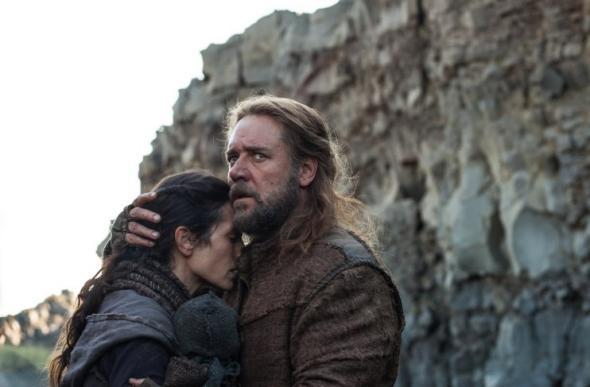For a book that’s supposed to have everything, the Bible is weak on public policy, and usually wrong. For example, the most sophisticated Old Testament discussion of policy occurs when Joseph is the vizier of Egypt during a seven-year famine: He forces starving farmers to give up their land and livestock in exchange for emergency grain from Pharaoh’s warehouses, thus turning freeholders into sharecroppers. It may be God’s will, but it’s terrible economics and worse public policy.
The story of Noah completely ignores policy questions: It’s essentially silent on why God decides to annihilate us, blaming it vaguely on our “corruption.” So I can’t blame director Darren Aronofsky for confecting a public policy tract for his own adaptation of the Biblical epic Noah—making something out of nothing is, after all, a staple of Genesis. But I do blame him for the mess he made of it. (Warning: There are very mild spoilers in what follows.)
I should say: I loved Noah. Despite its awkward special effects, humorlessness, and oddly unimpressive animal and flood scenes, Noah walloped me. It’s a beautiful, wrenching little family film hidden inside a CGI monster. But undergirding the movie is a vile message condemning both humanity and civilization.
Like the last Noah’s Ark movie, this Noah tells a straightforward environmental parable. Expelled from Eden, mankind has gutted and burned creation, chopping down every tree, butchering every beast, and crowding itself into black, sooty cities. Alas for mankind, the heavenly think tank only has one idea for addressing the issue: start over, with a lot fewer of us—like, half a dozen, preferably vegetarians.
Aronofsky’s message to us moderns is clear: We, too, have corrupted our world, just as the antediluvian humans (save Noah) did theirs. But the director’s public policy chops are scarcely more nuanced than Yahweh’s. He ends up condemning progress of all kinds. The movie pits Noah and his family against all the other humans of the world, led by the king Tubal-Cain. Noah and his family are rural gatherers, living gently off the fruit of the land. Tubal-Cain, by contrast, is a machine-maker and warlord who has strip-mined and clear-cut forests to build his cities. The Noah family is constantly moving further and further away from these cities, off the grid, to be alone. Repeatedly, Noah inveighs against mankind’s conurbations, and Aronofsky depicts their inhabitants as dark and Satanic, lawless and wanton. In these cities, every group is a mob, every encounter is a rape or murder.
It’s a strangely anti-human view of humanity, wherein mankind’s inherent desire to tame his surroundings and to build communities is painted as evil. Noah even scoffs at the very idea of labor. Tubal-Cain and his people mine, smelt, and hunt, to build towers and forge weapons. Their machine labor is contrasted unfavorably with the pastoral Noahites, who rely on a magical forest to supply trees for the ark. Noah hardly even “builds” the ark. He enlists a dozen 50-foot tall, six-armed angels made of rock (don’t ask) to do all the heavy lifting.
In its nostalgic, unsophisticated view of the world and our place in it, Noah collaborates in the fantasy of certain parts of the environmental movement, which believe that Earth would be healed if there were fewer of us, living further apart from each other. Yet Aronofsky has it upside down. Cities are ecologically kinder than other forms of human habitation. They foster communities and human connections, they enable the advancement of science and the creation of great art. Cities reduce population growth, raise living standards, increase life expectancy, and enhance human freedom. (See this for a great summary of why.)
A world of glowering, friendless farmers living miles and miles from one another? That may work well for a while. But if you really want us to go forth and multiply, God, we’re going to need a better plan—or you’re just going to have to start all over again, again.
